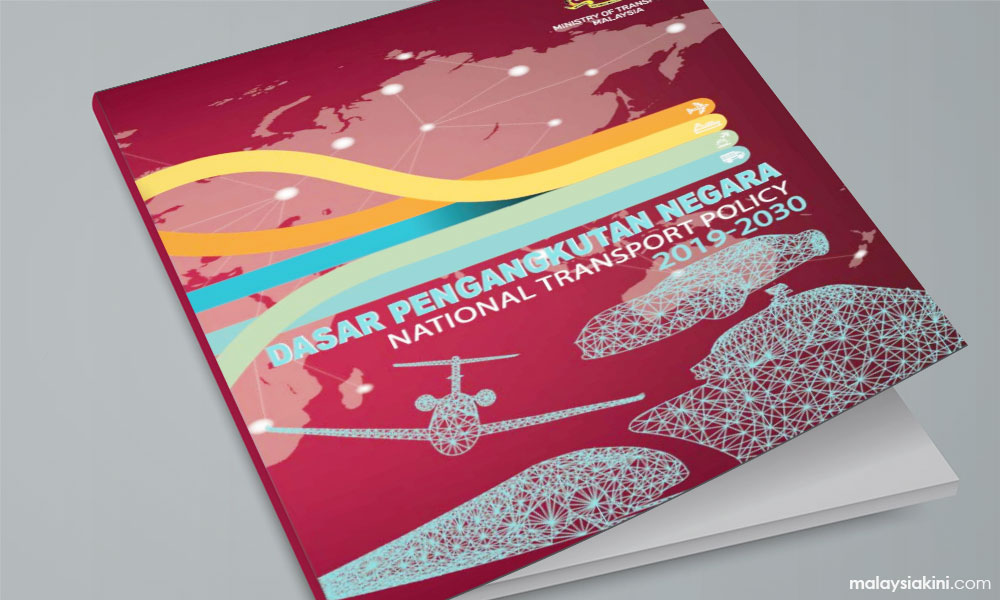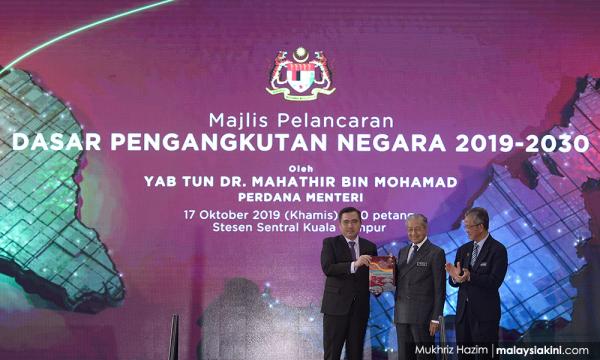Putrajaya today unveiled the National Transport Policy 2019-2030 in a bid to address various issues with the country's transportation system, including the fact that Malaysians are spending a significant sum of their disposable income on transportation compared with other developed countries.
The masterplan pointed out that Malaysians living in Kuala Lumpur spend an average of 10 percent of their disposable income on transportation compared with only four percent in Tokyo and Hong Kong.
It also acknowledged that traffic jams in the greater Klang Valley are costing Malaysia 1.1 percent to 2.2 percent in gross domestic product every year, which translates to RM6,144 per person per year.
These were in part due to Malaysians being more reliant on private transportation which is more costly than public transportation.
The transport master plan outlines five core policies and 23 strategies to address the various challenges involving land, sea and air transportation over 11 years.
Amongst the strategies is to encourage a shift of cargo transportation from roads to rail, which in turn will reduce the stress on roads and make it more comfortable for ordinary road users.

"The current movement of goods by rail is only 30 percent of total railway track capacity, and less than 5 percent of land freight is transported by rail.
"Therefore, there is untapped potential for using rail to transport goods, especially for dangerous and hazardous materials.
"Globally, rail transportation of hazardous materials is recognised to be the safest method of moving large quantities of chemicals over long distances.
"Similarly, there is additional capacity on the existing KTM Komuter and intercity rail services which have the potential to be utilised," it said.
To this end, the masterplan said amongst the action plans are improvements of rail infrastructure to ports and the liberalisation of their services.
It will also seek to improve the last-mile connectivity between road and rail for delivery of cargo to their final destination.
The plan will also push for the use of big data analysis to manage transportation as well as to encourage a centralised payment system to improve ease of usage on public transportation.
It also noted the need to improve accessibility for disabled people, ensure preventive maintenance and improving safety.
The NTP's five core policies are:
- Strengthen governance to create a conducive environment for the transport sector.
- Optimise, build and maintain the use of transport infrastructure, services and networks to maximise efficiency.
- Enhance safety, integration, connectivity and accessibility for a seamless journey for passengers and goods.
- Advance towards a green transport ecosystem.
- Expand global footprint and promote the internationalisation of transport services.
The detailed report can be found below:


